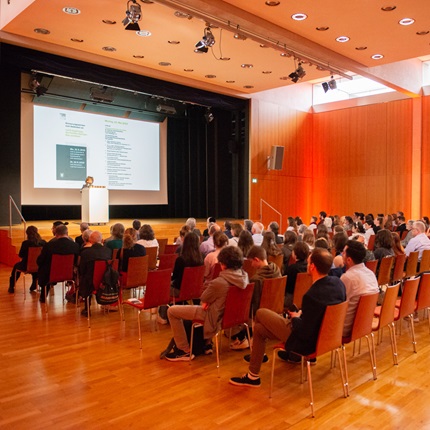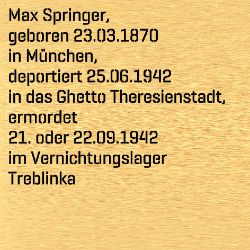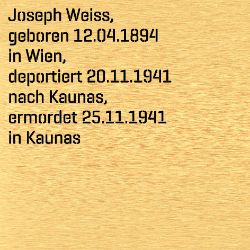My great-grandmother Dorline was born in Munich on August 22, 1877, the daughter of the horse merchant Abraham Maier and Rebekka Maier, née Schwab. She had an older brother whose name was Jakob. Dorline attended the Servite convent school. On October 18, 1896, she married the businessman David Springer, who was thirteen years her senior. Dorline and David were cousins: David’s mother Babette and Dorline’s mother Rebekka were sisters. The so-called “Hochzeitszeitschrift” (“wedding magazine”) that accompanied the happy occasion is still in the family’s possession. It consists of self-penned rhymes good-naturedly poking fun at the young couple and many of their relatives in Munich dialect.
Dorline and David together ran the J. Springer dry goods shop at Rosental 19 (now Sendlinger Strasse 3) that had already belonged to David’s father Israel Springer. The building was owned by various members of the Springer family. The couple had two daughters: Anna (Anny), born in 1898, and Elisabeth (Lisl), born in 1904. Dorline maintained strong ties to the Springer family; she was especially close to her two sisters-in-law and cousins Lina Farnbacher, née Springer, who lived in Augsburg, and Rosa Reis, née Springer, and their families. These relationships will have been very important to her after her husband David’s death in 1930. Once a widow, Dorline closed down the dry goods shop and the premises were rented out to a candy shop.
In 1936, three years after the beginning of Nazi rule, Dorline’s daughter Anny managed to emigrate to the U.S. with her husband and two sons. Dorline visited her there for about four months in the winter of 1937/38. Anny and her husband Julius begged her not to return to Germany, but she longed for her home in Munich where her daughter Lisl, many of her other relatives and her friends all still lived. On January 25, 1938, she bid her daughter in Chicago farewell in the following note: “Good night, my beloved Anny. I can’t tell you how much I love you. All the very best for all of you. Your mother.”
Back in Germany, the persecution of the Jews was rapidly increasing. In 1939 Dorline was forced to move to a so-called “Judenhaus” (“Jews’ house”) at Landwehrstrasse 44. The same year she was taken into custody in Stadelheim “in a discriminatory matter”, as the lawyer Mr. Neuland of Munich recalled after the war. He represented Dorline and visited her in prison. Also in 1939, her great-niece Gertrud Farnbacher (later Karen Hillman) from Augsburg came to visit her. She later wrote: ““I have always been very fond of Lina [Dorline]; she was like a third grandmother to me. … Before I left to emigrate, I was in Munich to say goodbye to the relatives. Lina had me over and taught me how to make 'Kartoffelnudeln'. She thought it would be helpful for me since I was going to be a maid in England. Actually I have never made the 'Kartoffelnudeln' since—they are very good and a lot of work—, but I was, and in a way still am, very touched by this. It was so nice and thoughtful of her.”
Dorline Springer was deported to the Piaski Ghetto on April 4, 1942 at the age of 64. The conditions in the ghetto and the surrounding camps were horrific. It is not known how, when or where Dorline died. After the war she was declared dead effective November 30, 1942. (Text and translation: Judith Rosenthal; editor: C. Fritsche)



-Springer_portrait.jpg/jcr:content/PORTRAIT_14736.jpg)




-Weiss_image.jpg/jcr:content/EZ_BILD_14728.jpg)